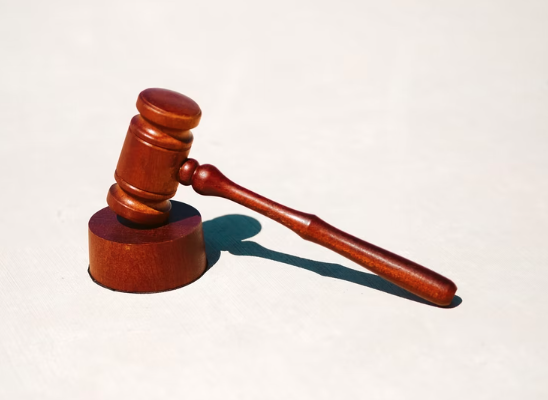As the world is plunging into another recession, some people may, unfortunately, find themselves at the receiving end of the economic crisis. Thankfully, there are designated bankruptcies procedures that help alleviate some of the damages and safely start an altogether new life. Learn about the critical US bankruptcy details in this article.

Bankruptcy attorney
Most judges do not allow some types of bankruptcy (for example, under chapters 11 or 13) to be filed without the direct participation of a qualified lawyer since they are technically complex and considered to be impossible to complete without due legal education of a business bankruptcy attorney.
However, even when filing for chapter 7, a bankruptcy lawyer may prove useful for many reasons. If you are unable to pay for a lawyer, you can find a free assistance option through your state’s State Bar.
What exactly does a bankruptcy attorney do?
It is a lawyer’s job to make a complete inventory of the property and all debts – especially since, under state law, something may be considered exempt and not subject to seizure and further sale to pay off debts.
The attorney is also present at the client’s interview with the bankruptcy bailiff, whose task is to find a property, sell it and pay the creditors.
Fraud risks
A lot of fraud occurs within the bankruptcy filing processes, and if this is discovered, a criminal investigation will be opened. There are even cases where the bankruptcy itself is confirmed, but one of the debts is still regarded as fraud. After the end of the bankruptcy process, you still owe the amount to the creditors.
Also, some types of debt cannot be written off. In this case, after the end of the bankruptcy procedure, you will still be left with these debts that will need to be paid. A typical example – is a stolen car, for which only a couple of monthly payments were previously made.
Why do people file for bankruptcy?
Most often, people are forced to file for bankruptcy because of.
- Lack of financial knowledge and adequate planning. Before investing in your own or someone else’s business, one needs to conduct a thorough analysis, draw up a clear business plan, and study the state’s taxation in which the work will take place. A lot of people make “handshake” deals, which have no legal binding force. The critical point is that an individual should not open a business without having a financial reserve for at least half a year.
- Another reason is that people spend more than they earn. If banks give credit cards, this does not mean that this is free money that needs to be quickly spent on various needs. It pays to be frugal, after all.
- Additionally, there are cases when people simply have to file for bankruptcy due to external force majeure factors, in case of disability or job loss.
Main types of legal bankruptcy
Chapter 7
A liquidating bankruptcy eliminates credit card debt, medical bills, and most unsecured debt and does not require a repayment plan. One of the main requirements is that your income must be below a certain level, and you do not have a property whose value exceeds the amount of potential debt repayment.
You can apply under chapter 7 if the annual income (calculated per household and the number of people in it) does not exceed.
- For one person – $59,286.
- For two – $77,860.
- For three – $86,665.
- For four – $99,512.
If you earn more, you do not qualify for this particular bankruptcy chapter 7. However, a bankruptcy lawyer may be able to help find you alternative solutions.
Also, you can apply for Chapter 7 if your property qualifies for it. For example, many people fear that their house or apartment will be taken away, leaving them with nothing. Each category of the property has its exemption – the amount that is not subject to seizure.
How to calculate it
For example, your house is worth $1.1 million, and you have $925,000 in mortgage debt. The “accumulation” is $175,000. Depending on your age, marital status, or disability, you are entitled to an exemption ($75,000, $100,000, or $175,000) from this amount.
For example, if you live alone and are 40 years old, the exemption will be $75,000, and when you sell your house, this amount will be paid to you, and the bailiff will begin to pay off debts from the remaining amount ($100,000).
Chapter 13
Chapter 13 bankruptcy is a repayment plan that is based on your income. It is calculated according to IRS standards – for example.
If your income is $4,000, you may live by spending only $3,000 – the resulting difference of $1,000 will be paid monthly on debts for 36 to 60 months. The payments will also depend on the category of debt (secured or unsecured) and the amount of accumulation in your property (minus the exemption).
If there is an accumulation in the property (for example, a house), then the payment will have to correspond to the amount of accumulation.
For example, the same $1.1 million home sold and a $925,000 mortgage would give a bailiff only $100,000 in debt as a percentage of unsecured debt, even if the debt is more considerable. The rest of the payment of unsecured debts to creditors will be forgiven. Remember, though, that all secured debts must be paid in full.
Chapter 11
Chapter 11 covers the reorganization of bankruptcy. This chapter is suitable for businesses (corporations, limited liability companies, or partnerships) and those who cannot file for bankruptcy under chapter 13 because their debts exceed the legal limit.
Correspondingly, the limit on secured debts is $1,257,850, on unsecured debts – $419,275. This chapter, therefore, is most suitable for people whose level of prosperity is above average and who own substantial savings and property.






